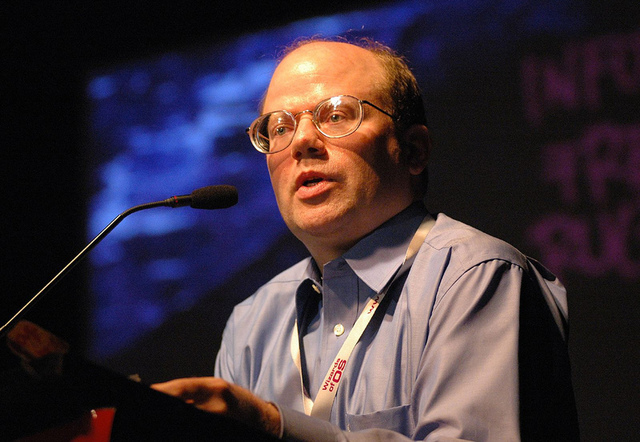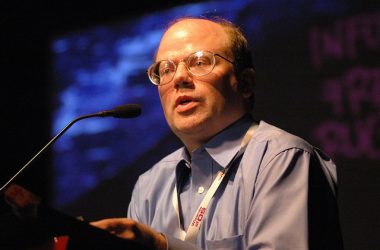
The inaugural Future Blockchain Summit at Dubai World Trade Centre kicked off with an engaging panel discussion on the potential of the distributed ledger technology, which saw a selection of international experts attempt to simplify the concepts of what could be achieved with Blockchain.
Wikipedia co-founder Larry Sanger kicked off the panel by saying that Blockchain’s scope was so broad that it was not confined just to enhancing transactional transparency.
“It’s an abstract concept, so it can be applied to so many different problems,” he said. “If you’re talking to a friend via Facebook, you both have to be connected to single server. What if you could interact without a single server, due to distribution of means of communication?”
Brock Pierce, chairman of the Bitcoin Foundation, then said that the architecture of the Internet is inherently flawed, and needs new technologies like Blockchain to rethink its security.
“Blockchain by its nature allows you to extract information from systems,” he said. “It is the enabling technology that makes all cryptocurrencies possible. The Internet, in simple terms, is a data transport protocol. By the time that the Internet had truly recognised its processing capabilities, faulty foundations had been laid for security. Blockchain incorporates new secure data transport.”
METal International founder and TEDX board member Ken Rutkowski echoed Sanger’s comments, saying the ability to remove third various financial third parties who are responsible for record keeping would bring significant disruption to the world.
“It’s an evolution of the internet, to becoming the internet of value,” he said. “It’s about the ability to move, store and create value through peer-to-peer networks, rather than through third party brokers. It brings lots of challenges. Will the technology be able to scale? How will incumbents react, and how will governments and regulators treat it? There are implementation challenges to overcome and rework the way the internet operates, and create value that we couldn’t have foreseen.”





